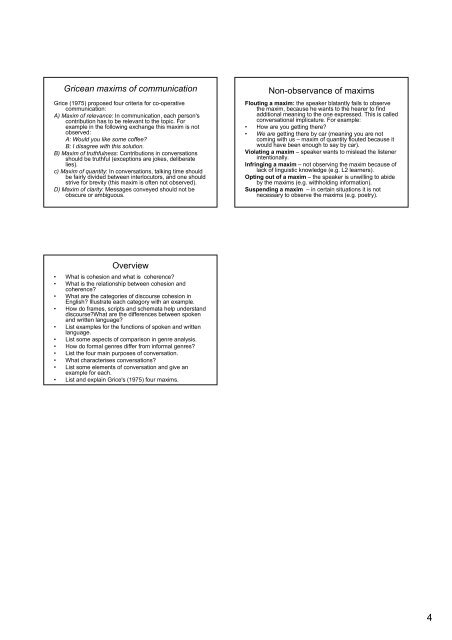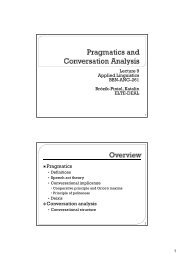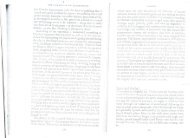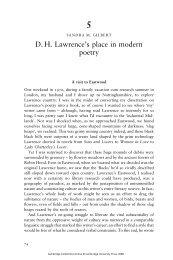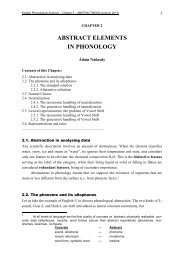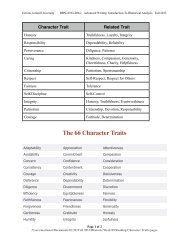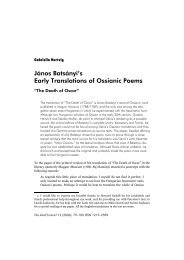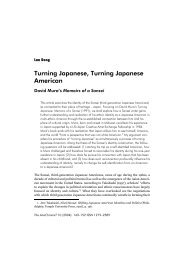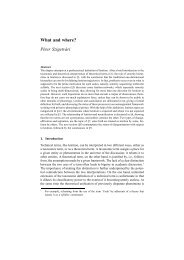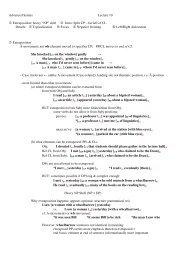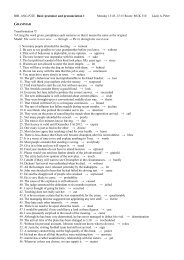You also want an ePaper? Increase the reach of your titles
YUMPU automatically turns print PDFs into web optimized ePapers that Google loves.
Gricean maxims of communication<br />
Grice (1975) proposed four criteria for co-operative<br />
communication:<br />
A) Maxim of relevance: In communication, each person's<br />
contribution has to be relevant to the topic. For<br />
example in the following exchange this maxim is not<br />
observed:<br />
A: Would you like some coffee?<br />
B: I disagree with this solution.<br />
B) Maxim of truthfulness: Contributions in conversations<br />
should be truthful (exceptions are jokes, deliberate<br />
lies).<br />
c) Maxim of quantity: In conversations, talking time should<br />
be fairly divided between interlocutors, and one should<br />
strive for brevity (this maxim is often not observed).<br />
D) Maxim of clarity: Messages conveyed should not be<br />
obscure or ambiguous.<br />
Overview<br />
• What is cohesion and what is coherence?<br />
• What is the relationship between cohesion and<br />
coherence?<br />
• What are the categories of discourse cohesion in<br />
English? Illustrate each category with an example.<br />
• How do frames, scripts and schemata help understand<br />
discourse?What are the differences between spoken<br />
and written language?<br />
• List examples for the functions of spoken and written<br />
language.<br />
• List some aspects of comparison in genre analysis.<br />
• How do formal genres differ from informal genres?<br />
• List the four main purposes of conversation.<br />
• What characterises conversations?<br />
• List some elements of conversation and give an<br />
example for each.<br />
• List and explain Grice's (1975) four maxims.<br />
Non-observance of maxims<br />
Flouting a maxim: the speaker blatantly fails to observe<br />
the maxim, because he wants to the hearer to find<br />
additional meaning to the one expressed. This is called<br />
conversational implicature. For example:<br />
• How are you getting there?<br />
• We are getting there by car (meaning you are not<br />
coming with us – maxim of quantity flouted because it<br />
would have been enough to say by car).<br />
Violating a maxim – speaker wants to mislead the listener<br />
intentionally.<br />
Infringing a maxim – not observing the maxim because of<br />
lack of linguistic knowledge (e.g. L2 learners).<br />
Opting out of a maxim – the speaker is unwilling to abide<br />
by the maxims (e.g. withholding information).<br />
Suspending a maxim – in certain situations it is not<br />
necessary to observe the maxims (e.g. poetry).<br />
4


